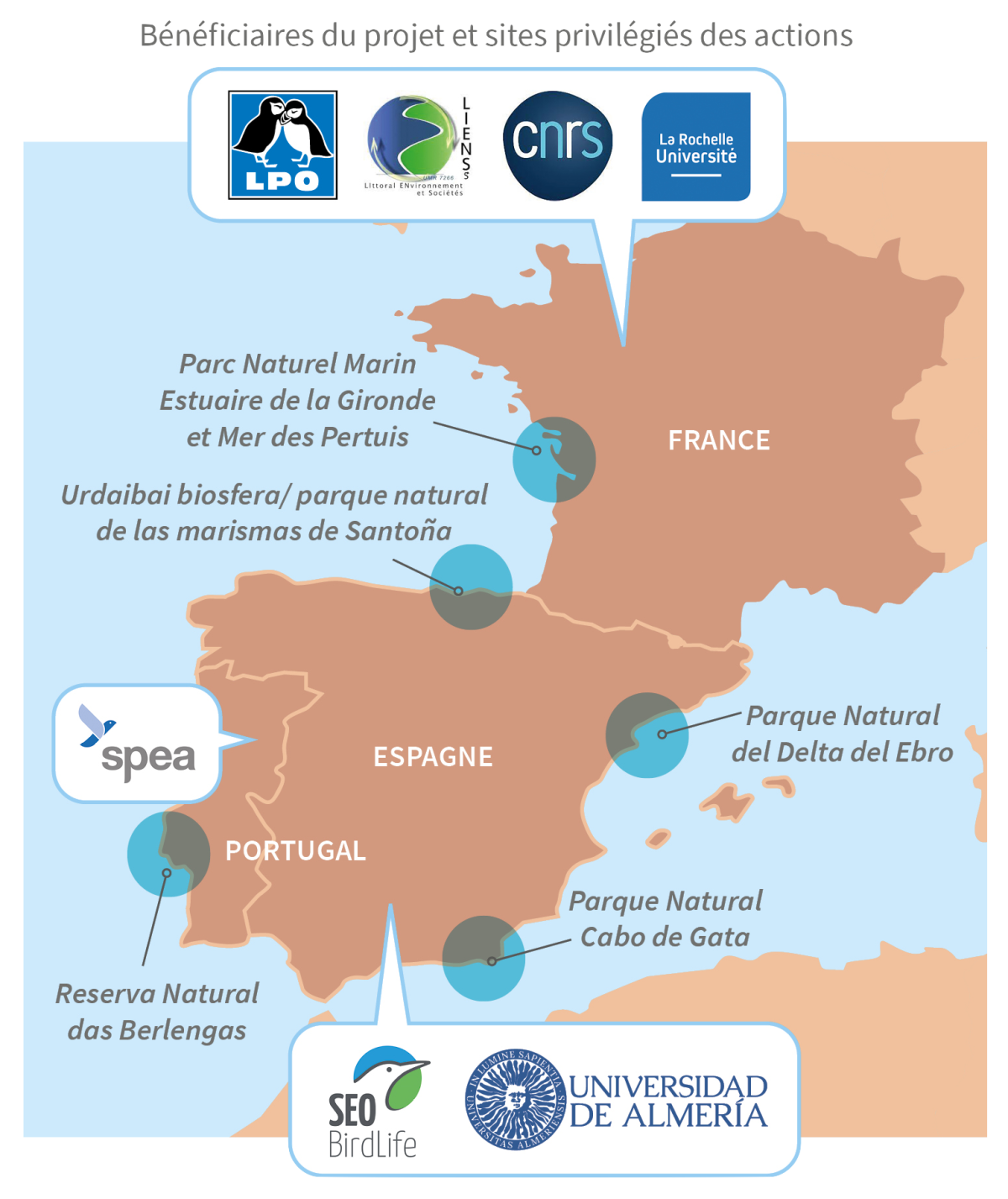
With one century of commitment and more than 46.000 members, 5.000 active volunteers, 160 employees on national territory, and a network of active local associations across 79 departments, the LPO is now the first French nature protection association and has been recognized as a public authority. The LPO is also the official representative of Birdlife International in France.
Very active on the French coast, the LPO has a strong commitment to the protection of the marine environment. Every year, the LPO takes care of thousands of injured, oiled, or abandoned birds in rehabilitation centers.
As part of the LIFE SeaBil project, the LPO will ensure that actions implemented by beneficiaries meet the European Commission requirements.
La Rochelle University is an international and dynamic higher education institution founded in 1993. In 2020, it welcomed 8.862 students, including 11.8% of non-nationals.
It is also an attractive research center with 10 research laboratories that welcomed 206 PhD students in 2020, and where 237 researchers are working on four major social challenges: environment, energy, digital transition, and social science-related research.
LIttoral, Environment, and Societies (LIENSs), a research unit that integrates expertise in contaminants (in particular, plastics) on marine ecosystems, will host the tissue bank laboratory.
Established in 1993, the University of Almería (UAL) is a research and education-oriented public university. This non-profit organization offers 32 degrees and employs more than 800 professors.
It currently has more than 13.000 students, including 600 PhD students. A total of 13 departments (139 research groups) are dedicated to research and training.
As a scientific partner in charge of implementing actions on Cabo de Gata Natural Park (Spain), UAL will play a key role in setting up network for stranded birds.
La Sociedad Española de Ornitología (Spanish Ornithological Society) is the oldest non-governmental organization dedicated to conservation of the environment in Spain. It was founded in 1954 with the main aim of studying and conserving birds and their habitats. On August 27th, 1993, SEO was declared an association of public utility by the Council of Ministers. SEO has almost 20.000 members and, each year, more than 8.000 volunteers participate in its projects.
SEO is also a member of the NGO BirdLife International network, with representatives in more than 110 countries and the whole European Union.
In charge of setting up actions on Urdaibaï Biosphere Reserve, Santoña Marshes Natural Park, and Ebro Delta Natural Park (Spain), SEO will be especially involved in adapting the implementation of seabirds and marine litter monitoring.
The SPEA (Portuguese Society for the Study of Birds) is a Portuguese environmental non-profit NGO that promotes the study and the conservation of birds and their habitats. SPEA is BirdLife International’s partner in Portugal since 1999.
SPEA has actively participated in monitoring programmes (atlas of nesting birds, common bird census) and implementing important projects as part of the EU LIFE Programme for the conservation status of priority habitats and species.
SPEA will oversee implementing the project in Portugal, and more specifically within the seabird nesting colonies in Berlengas Biosphere Reserve, to evaluate the impact of plastic pollution on the habitats and local seabird population.